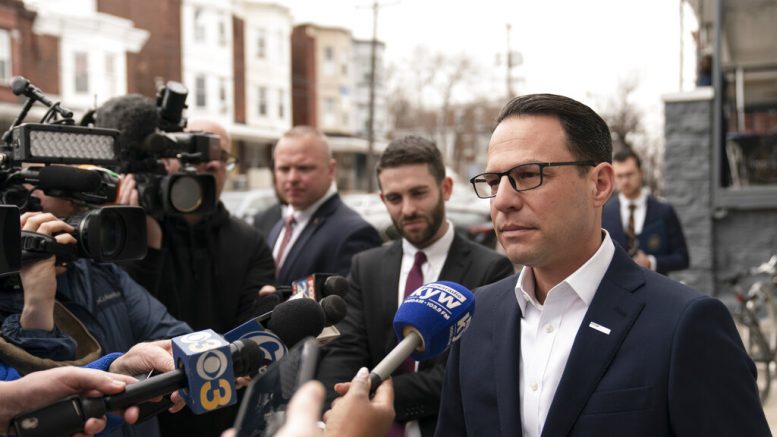HARRISBURG (AP) — Democratic Gov. Josh Shapiro said Thursday he will not allow Pennsylvania to execute any inmates while he is in office and called for the state’s lawmakers to repeal the death penalty.
Shapiro, inaugurated last month, said he will refuse to sign execution warrants and will use his power as governor to grant reprieves to any inmate whose execution is scheduled.
In doing so, he is exercising an authority used for eight years by his predecessor, Gov. Tom Wolf, to effectively impose a moratorium on the death penalty in a state where it has been sparsely used.
Shapiro went further, asking lawmakers to repeal the death penalty and calling it fallible and irreversible.
“Today, I am respectfully calling on the General Assembly to work with me to abolish the death penalty once and for all here in Pennsylvania,” Shapiro said in a news conference at Mosaic Community Church in Philadelphia.
The state, he said, “should not be in the business of putting people to death.”
Shapiro appeared at the news conference with Philadelphia Mayor Jim Kenney and three Democratic lawmakers from Philadelphia who also support abolishing the death penalty — Sens. Vincent Hughes and Nikil Saval and Rep. Rick Krajewski — but caucus leaders were noncommittal.
In a statement, the office of House Majority Leader Joanna McClinton, D-Philadelphia, said Democrats have long supported criminal justice reform and called Shapiro’s approach to the issue encouraging and thoughtful.
House Democrats “look forward to working with the administration to advance these criminal justice reforms more broadly,” her spokesperson said.
Senate Majority Leader Joe Pittman, R-Indiana, said in a statement that protecting society while advancing criminal justice reforms are priorities for Senate Republicans. But, he said, such a change must consider the views of law enforcement and the families of murder victims.
“Without question, the legal and ethical aspects of the death penalty warrant careful examination before being used,” he said.
The first execution warrant came to his desk last week, Shapiro said.
Twenty-seven states have laws allowing the death penalty, although three of those — Pennsylvania, California and Oregon — have a moratorium imposed by governors there, according to the nonprofit Death Penalty Information Center.
On the campaign trail last year for governor, Shapiro had said he was morally opposed to the death penalty, even though he had run for attorney general in 2016 as a supporter of the death penalty for the most heinous cases.
Shapiro is shifting his stance amid shrinking support nationally for the death penalty.
While Wolf was governor from 2015 until last month, judges delivered eight more death sentences. In the meantime, Wolf issued eight reprieves to inmates who had been scheduled to be put to death.
Wolf, a Democrat, had said he would continue the reprieves until lawmakers addressed inequities in the use of the death penalty, but lawmakers never did and Wolf’s reprieves remain in effect.
Wolf’s use of reprieves was upheld by the state Supreme Court in a legal challenge brought by county prosecutors, who argued that Wolf was unconstitutionally turning what had been intended to be a temporary tool into a permanent one.
Pennsylvania has 101 people on its shrinking death row, according to statistics from the Department of Corrections. The state has executed three people since the death penalty was reinstated in 1976, as courts and now governors have blocked every other death sentence thus far.
All three men who were executed gave up on their appeals voluntarily. The state’s most recent execution took place in 1999.




































